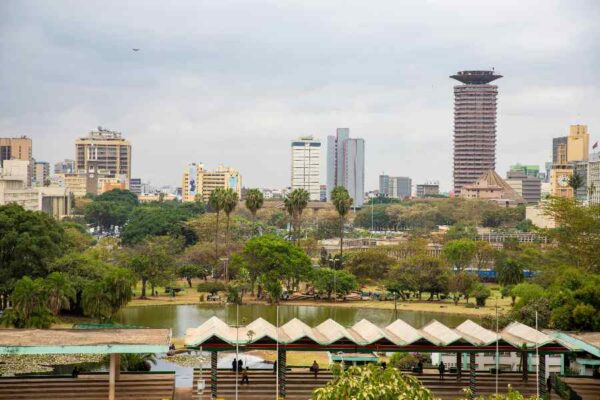Have you decided on starting a blog, or are you still looking for general know-how? Well, we will sail you on how to start a blog in Kenya and show you all you should understand about getting started with a blog.
Owning a blog allows you to make an online appearance and become an online influencer. You will help people in your field, and you will have power and authority in the blogging world.
Consequently, many businesses will cluster requesting you to help them put their particular blogs online to increase their reach in the online community.
Many Nay-sayers have said blogging is complex, and many people run from blogging. You believe you ought to possess excellent writing skills to execute such online from other clouds.
What if I showed you ‘they are only Nay-Sayers’ who has failed to understand what the field request from them! Do you believe they are more skilled or have knowledge than you? Absolutely NO.
We will explain to you how to start a successful blog in Kenya. Again, take you through the procedure to enhance expansive knowledge of the blogging community.
To start a blog in Kenya, you have to get your website. Website is a unique platform that will host your blogs (content) on the internet worldwide.
I will get you start with a blog in Kenya with the following steps.
1. Niche selection that ranks
2. Getting website name
3. Getting the website online
4. Essential pages for a website
5. How to promote blogs
First, the ‘juice’ that keeps bloggers going is the fact they outrank thousands of blogs with similar keywords.

What is a keywords?
Keywords are exact words that creators focus on to enhance ranking by Search Engines.
Elaborately, they are sets of words that people are actively searching for in the browsers to read and help them solve concerns.
1. Niche selection
Niche is basically a specific field that your content focuses on. Niches are Finance, Health, Education, to name a few.
Niche enables you to focus on a relatively narrowed field that explains your websites’ brand. And help people trust you in the online community.
In addition, one can quickly advance their skills and knowledge on the niche, hence producing exceptional blogs and making you sound professional.
To archive faster success, one should implement sub-niche blogging. In this way, your website quickly builds authority and get always prioritized when the audience searches for the related keywords.
Most important to know is that more blogs are being published in a single day, millions to be fair enough.
So, the living trick to get more website visits is generally by employing a sub-niche blogging hack.
Hey, somebody blown cold? Don’t; those represent blogs from all niches. With the sub-niche strategy, your website will lead and earn you dollars. Bet me true.
2. Your Website Name
Internet houses limitless pieces of stuff, and the way forward to reach the desired destination, they must be aware of the destinations’ identity (Name).
Website Name enables people to reach your blog right away with a click on the browsers.
One can use anything not weird to become the website name. However, one has to keep watch never to use longer words or those representing their niche, because ideally, you may understand why you should change your niche in the future.
For illustration, the website name may be;
Flawlesshorizon.com (my website’s name)
Eastleighgirl.com
Joon.co.ke
Venusnews.com
Nasonga.com
You have identified that there are extensions after names (dot(.)com; dot(.)co.ke and there are other hundreds of extensions.
Dot(.)com shows that your website is for-profit (business)
Dot(.)co.ke identifies the website as for-profit and are specifically an extension for Kenya.
Which extension to choose for your website?
Dot(.)com
Websites with dot com extensions are worldwide websites and may or may not focus on a single Country.
If you intend to use your website for business, it is recommended to use dot com.
Dot(.)co.ke
It signifies that your website is from Kenya and usable for profit-making.
Only use it if your website will totally address Kenyans as your targeted audience. They rarely rank or don’t rank in other countries, not even in Uganda- the neighborhood.
Note: If your website will target people even from overseas, use dot(.)com extension.
Dot(.)net
Dot net is usable by websites that do not work for a profit. Charities mostly use this extension (help the needy).
3. Getting the website online– The first step to start a blog in Kenya
Making your website visible online can be fancy, a real milestone made, and you officiate the name blogger. I mean a Kenyan blogger—much fan.
Use my BLUEHOST LINK to register with Bluehost the best Web Hosting for beginners and receive a generous discount on your hosting today.
To submit your website on the internet, you have to get a hosting company to help you with the deal.
Web Hosting Companies give you a chance to have your website hosted on the internet at relatively lower prices.
In Kenya, we have Hostfiti, Truehost, Kenya websites Experts, Sasahost, etc.
Related: How to make money online by Writing News in Kenya
Why I’m not too fond of Web hosting Companies within Kenya;
It is a good idea to support our own Web hosting company, but the bigger question is that, are they reliable for business?
Even though an outside Company hosts Flawlesshorizon, I can attest that Web Hosting in Kenya may not favor the future of your business.
The rate that such websites ‘goes down’ (go offline) is wanting. There is no significant loss for an online business other than going offline when people search for them. That is living harm. Therefore, I does not recommend you to start a blog in Kenya with them to save your future without moving from them to another good host.
4. Creating basic pages for your website
Pages make website content arranged so that it is easier to navigate from one page to another.
Again, the page enables the audience to easily find whatever they need without difficulty because pages contain specific information.
There are 3 basic pages that every website should have;
Home Page
Home Page is the first page visitors will get directed to once they type your websites’ names.
It contains information about what the website is all about. If you provide services on your website, it is included on the home page.
Contact Page
As the name suggests, it shows your contact details so that customers can easily reach you Incase the need set in.
You should add your active email address and operating phone numbers.
About Us Page
You are expected to give more details about your website on the about page. And may include;
How the page was founded
Google Map
Number of writers
These pages should be short as possible and hit directly to the main content.
Once your website is live on the internet, you should start working on promoting the blogs.
5. How to promote blogs once start a blog in Kenya
When coming down to websites’ content promotion, it may be the easiest thing ever—no more headache.
Social Media (Twitter, Instagram and Facebook) provides a fantastic platform to share your website content. You only need to switch your personal account to a business account, and all is ridiculously easy.
However, with Facebook, one has to create a Facebook Page to limit spamming your personal Facebook account.
Other platforms to share the blogs are Pinterest (my favorite), Medium, Reddit, LinkedIn, Quora, etcetera.
Get a full (4,900-word) guide on how to start a blog in Kenya and purchasing hosting services from reliable Web Hosting.
Does blogging pay in Kenya?
Average Kenyan bloggers earn approximately Ksh.40,000 ($400).
However, the amount depends on many factors, such as blogging niche, traffic, and affiliate marketing programs by the blogger.
What is the cost of starting a blog in Kenya?
With a minimum of Ksh.5,000, you can start a profitable Blog in Kenya and develop it to many figures.
To start a blog, it may cost Ksh.5,000 to 20 000 per year, depending on the type of the website.
How to start a free blog in Kenya
Tostarta free blog without a budget, one needs to use the following blogging platforms.
- Blogger
- WordPress.com
- Medium Ghost
- Wix
- Tumblr
Though it can be appealing to commence a free blog, it, however, comes with some limitations such as;
- Limited monetization with AdSense
- Some do not accept affiliate programs. (Affiliate sometimes pays well than AdSense or add the better amount to your earnings.)
- You don’t have much freedom of what to do with your blog.
- You can get banned any time you disregard their guidelines.
How do bloggers get paid?
Bloggers monetizing their blogs with AdSense get paid typically by cost per click (CPC) and cost per mile (CPM)
CPC
It refers to the amount paid per click when a visitor clicks on an ad or ads.
CPM
Per mile represents the general cost given per 1,000 clicks with and without clicking on any ad.









